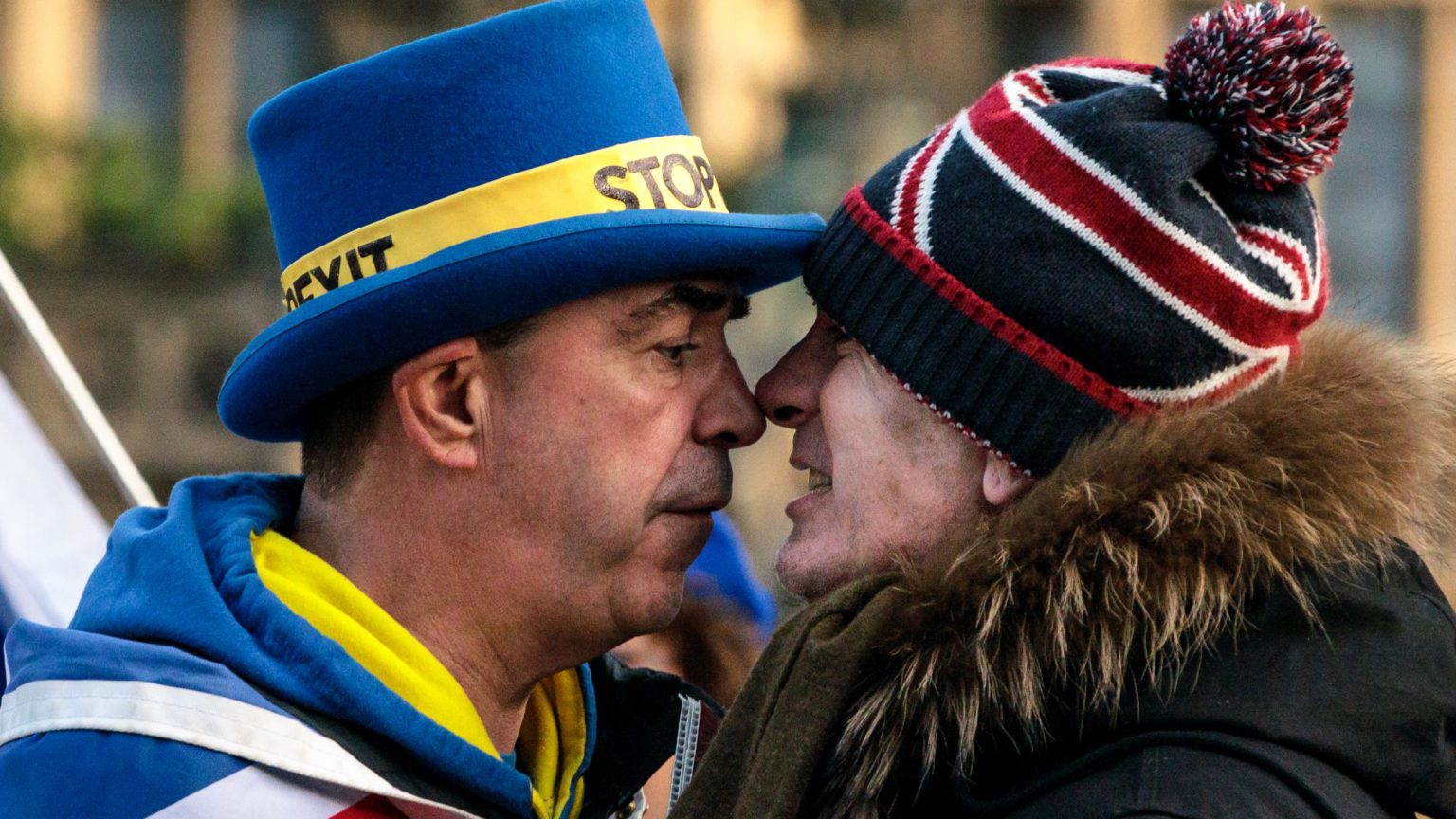A very British culture war
Brexit has exposed a fundamental divide between individualists and communitarians.

It is often said that now the United Kingdom has left the European Union, it is time for us all to band together and unite in the name of the common good. While it is admittedly a nice thought, it is spectacularly detached from reality.
The UK – whether we like it or not – finds itself in the middle of an aggressive culture war. The idea of national reconciliation now is wishful thinking. The prospect of us all playing happy families, after decades of social fracture and three years of intense wrangling over Brexit, is for the birds. British political culture has always been confrontational and adversarial, and Brexit has compounded this. Added to this are the many cultural and identitarian conflicts that are increasingly being imported from the United States. All in all, there is little chance of a more consensual political environment taking root anytime soon.
The BBC is at the heart of this culture war. In the build-up to Brexit Day, CBBC, the BBC’s children’s channel, posted a bizarre sketch on social media. It was from an old episode of Horrible Histories, but it featured a new Brexit-themed introduction by comedian Nish Kumar. Not only was the sketch riddled with historical inaccuracies, it also came across as overtly anti-British – with all involved displaying a comical form of self-loathing.
On Brexit Day, the BBC also broadcast a spate of interviews with pro-Brexit members of the public. The interviews adopted an unusually forceful style of questioning, one usually reserved for politicians and those with extensive media experience. The reporters repeatedly asked these Leave voters: ‘How will leaving the EU affect your daily life?’
This line of questioning is significant. It speaks to a broader cultural divide in our society – a divide between the individualism that dominates institutions such as the BBC, and the patriotic communitarianism that runs deep in the Brexit-voting provinces. Our national public broadcaster is packed to the rafters with self-absorbed individualists, people who are still utterly perplexed and even angry about Brexit and resent the Conservative victory in December. After all, both the referendum and the 2019 election were votes in which culturally conservative folk, living humble existences, played a decisive role.
Elite Remainers argue that by leaving the EU we are ‘losing’ certain individual rights and benefits – from the freedom to work and live in other EU countries to the suspension of mobile roaming charges. These arguments may resonate with people who see themselves as ‘citizens of the world’, but much less so with patriotic, communitarian voters. These voters prioritise the democratic health of the UK over the wants of the individual.
These conflicts are also playing out within our political parties. Boris Johnson’s shift to the left on economics, which helped him win over former Labour voters in the election, has provided him with an electoral coalition that is uncomfortable with the blend of neoliberal economic orthodoxy and metropolitan social liberalism that characterised the Cameron-Osborne years. Meanwhile, following the spectacular Tory breach of Labour’s northern ‘red wall’ constituencies in the election, Blue Labour, founded in 2010 by Maurice Glasman, has spied an opportunity to promote its patriotic, communitarian message, based on the triad of faith, family and flag. Blue Labour is at odds with the open-borders cosmopolitanism of Momentum, which continues to hold considerable power and influence within Labour’s internal party structures.
The instincts of metropolitan liberalism often come into conflict with the more security-oriented values of cultural conservatism. This is no better demonstrated than by the current debate on gender recognition. There are those who believe that individuals – irrespective of immutable biological characteristics – should not only be free to self-identify in terms of gender, but also that their gender identity should be acknowledged by the authorities and respected in the eyes of the law.
On the other side, we have people – such as myself – who think that the totalitarian impulses of the transgender movement must be confronted. Such concerns about the trans movement are rooted in the interests of the collective over the individual – including the safety of women in spaces such as public toilets, the upholding of fairness in women’s sport, and the wellbeing of those providing sensitive services to women.
The UK is bitterly divided. No politician, however ambitious and optimistic, is likely to be able to bridge the social and cultural fault-lines that are now firmly embedded in our society. The country was divided before Brexit, but the post-referendum period has left us bruised beyond measure. The divides on cultural matters – immigration, multiculturalism, integration, crime, counter-terrorism, national security and more – will continue to define the post-Brexit national political discourse for some time.
Britain’s culture wars are in full flow and show no signs of ending anytime soon. Many of the debates on cultural issues will continue to be confrontational, adversarial and hostile for many years to come.
Dr Rakib Ehsan is a research fellow at the Henry Jackson Society. Follow him on Twitter: @rakibehsan.
Picture by: Getty
To enquire about republishing spiked’s content, a right to reply or to request a correction, please contact the managing editor, Viv Regan.










Comments
Want to join the conversation?
Only spiked supporters and patrons, who donate regularly to us, can comment on our articles.